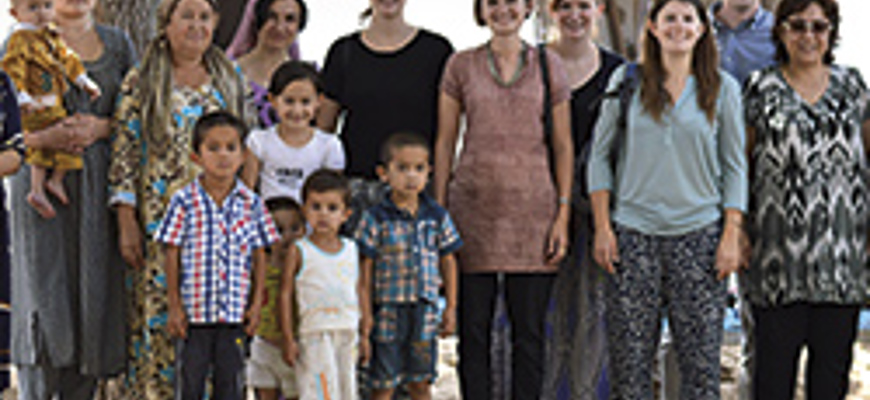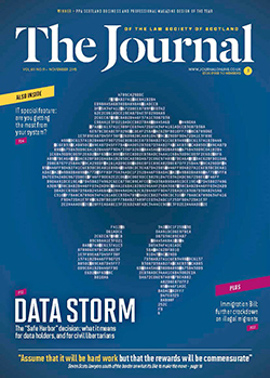Poverty: a new front in the war

Launched on 18 June 2015 at the Law Society (of England & Wales), Oxfam Lawyers Against Poverty is a collective of individuals from the legal community which identifies key legal projects that will make a difference to the poorest and most vulnerable people. These individuals then pool their combined skills and funding to give people greater knowledge of their rights and provide access to justice to help them break free from poverty.
Recently I was part of a delegation of lawyers from Oxfam Lawyers Against Poverty who visited Tajikistan to work with the Oxfam team based in the capital, Dushanbe, on issues such as legal education and women’s rights. This is an account of our visit and Lawyers Against Poverty’s current projects in the country.
Assistance to the Tajik Government
Our delegation met with several Tajik politicians in Dushanbe, including Rustam Shohmurod, of the Ministry of Justice, and Mirzoev Hursandmurod, senior adviser of the President Apparatus on Legal Issues. We discussed issues in Tajikistan such as women’s rights and education, and the importance of equality between men and women. These are issues already on the Government’s agenda, with it having recently passed a law on the prevention of domestic violence.
We raised with the ministers Oxfam’s capability of organising assistance for the Government in its international negotiations. Ahead of large international summits, developed nations have teams of lawyers at their disposal in order to protect the interests of their country. However, states such as Tajikistan do not always have access to such specialist legal advice. Oxfam Lawyers Against Poverty is able to mobilise lawyers specialised in the relevant legal area to help governments in their international discussions, such as at current climate change summits.
Legal education issues
Another primary issue for Oxfam is that literacy rates are dropping in rural communities, and greater effort is needed to support the country’s legal profession, including through education. Our
In Tajik law faculties, around 30% of the students are women. In order to standardise the national level, the country recently introduced national exams for entry into legal studies. However, the fact that the exams are in Russian is an obstacle for women because at the moment the quality of Russian language studies is reducing. Therefore, it is very difficult for women, particularly those coming from rural communities, to access universities. To combat this problem, the Government recently created a programme to encourage women to pursue their university studies, by providing bursaries to allow access to several universities in Dushanbe; however, more progress can still be made.
Lawyers Against Poverty
Poverty and access to justice
Lawyers Against Poverty also visited Zanjira Avliyoeva, who runs a free mobile legal advice clinic in the southern region of
Lawyers Against Poverty aims to put in place a
Finally, we met with Najbiddinova
Heavily reliant on remittances, much of Tajikistan’s male population regularly migrate to Russia for work, leaving women behind to manage and provide for the households. Lawyers Against Poverty is therefore also focusing on the economic and legal empowerment of rural women in Tajikistan like
By joining Lawyers Against Poverty, members have the opportunity to vote for legal projects, help steer the strategic direction of Lawyers Against Poverty,
As a member of the legal community (whether in academia, private practice, in-house, at the bar, in court, a law student, retired, secretary, journalist, administrator or paralegal), you can join Lawyers Against Poverty, contribute to projects such as these around the world and support Oxfam’s work ensuring access to justice and putting an end to poverty.
In this issue
- Appropriate adults and defence agents: who does what?
- Buying from a housing association: why consent matters
- Harassment: a civil claim?
- A welcome abroad: EYBA in London
- Reading for pleasure
- Opinion: David Faith
- Book reviews
- Profile
- President's column
- ScotLIS gets the green light
- People on the move
- Storm over Safe Harbor
- Light on a murky world
- Southern horizons
- Mediation minefield
- Migrants: no way to turn?
- The technological edge
- As our suppliers see us
- More rules to grapple with
- Fraud and divorce – a Scottish Sharland?
- What future for employment tribunal fees?
- Heading for a showdown on hard won human rights?
- Taxing question of relief
- Scottish Solicitors Discipline Tribunal
- How far can we rely on the register?
- All part of the game
- Law reform roundup
- From the Brussels office
- Poverty: a new front in the war
- Damage limitation: working it out
- Ask Ash
- A lawyer's lament
- Appreciation: Michael Scanlan






